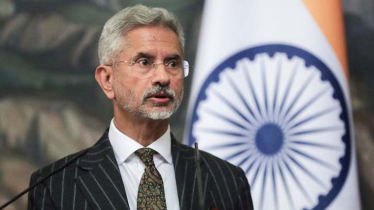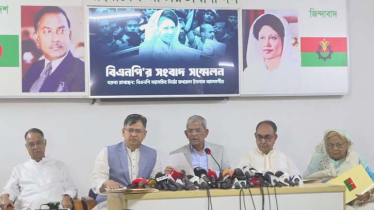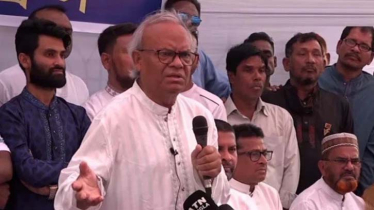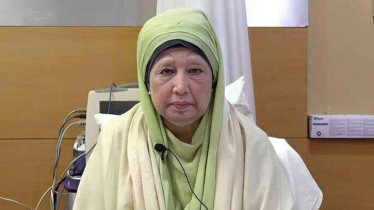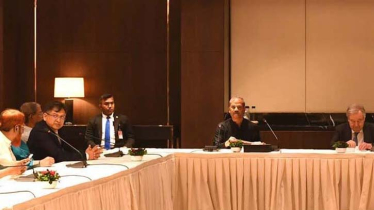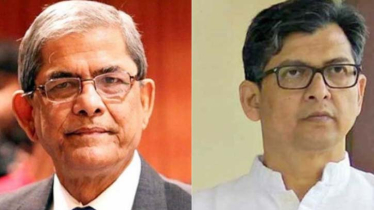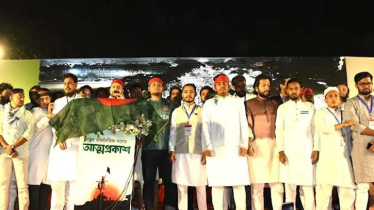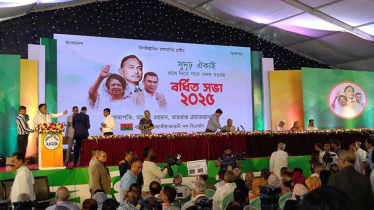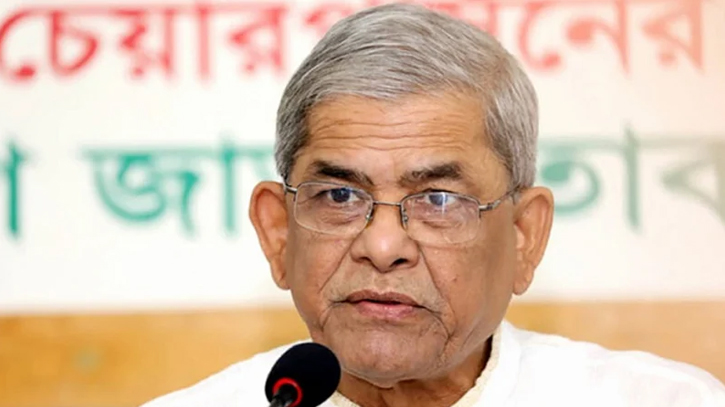
BNP Secretary General Mirza Fakhrul Islam Alamgir.Photo : Collected
Any fundamental changes to the constitution or formation of a new one should be undertaken by a parliament elected by the people, BNP Secretary General Mirza Fakhrul Islam Alamgir said today (21 September).
"The interim government should have formed a revolutionary government to address constitutional reforms, which it failed to do," the BNP leader told the journalists at the BNP Chairperson's Gulshan office.
Responding to a question about fundamental changes to the constitution, Fakhrul said, "Nothing is impossible, but it is a challenging task.
"The interim government should not have taken an oath under this constitution. But they did. Now, any reforms must be done within the framework of the current constitution.
"We, as a party, have already started working on what changes can be made to the constitution," he added.
When asked further about the possibility of constitutional reforms, Fakhrul stated, "My personal opinion is that any change to the constitution requires consultation with the people.
"Another thing is that a few experts can draft it, but for fundamental changes or creating a new constitution, a constituent assembly is required. In this case, public opinion is important, and the legal aspects must also be considered."
He emphasised that the people's "mandate" is the safest way to bring about fundamental changes to the constitution.
Fakhrul senses conspiracy behind unrest in CHT
The BNP leader also expressed concerns over the recent unrest in the Chittagong Hill Tracts (CHT), alleging that it may be part of a calculated plot to destabilise the interim government.
"I do not consider the recent incidents in the Chittagong Hill Tracts to be isolated ones. There are many factors involved," he said.
The BNP leader stressed the importance of the interim government engaging in discussions with major political parties to effectively manage the unrest in the CHT.
"I believe this is undoubtedly part of a strategy to destabilise the government and the political landscape of Bangladesh. The ongoing process can be viewed as an attempt to instigate a counter-revolution, undermining the benefits we have achieved through an uprising. Most importantly, there is an effort to initiate a process of depoliticisation," he said.
Besides, he said the remarks made by deposed Prime Minister Sheikh Hasina while in India are having a significant impact in Bangladesh.
"Overall, the situation is not very comfortable. It's quite uncomfortable...I can say there are valid reasons for concern," he said.
Fakhrul assumed that vested quarters may be trying to take advantage of the vacuum of a political and elected government in Bangladesh amid the unrest in Myanmar and the ongoing rebellion in India's Manipur.
"If you consider all of these together, I believe these geopolitical incidents are very significant. But it would not be appropriate for me to comment further on the matter at this time," he said.
The BNP leader believes that recent events following the formation of an interim government led by Dr Muhammad Yunus—including the encirclement of the Secretariat by Ansar forces, various demands from different groups, incidents of mob lynching at Dhaka and Jahangirnagar universities, and attempts to disrupt communal harmony—should not be seen as isolated incidents.
He said the main motive behind these incidents was to destabilise the interim government.
Referring to the unrest in the Chittagong Hill Tracts, he said the party's Rangamati leader Dipen Dewan expressed his concern as the government did not impose a curfew there to tackle the situation.
"After I learned about it, I informed those I know (in the government), but a curfew was not enforced. Only section 144 was imposed, but the situation could not be controlled effectively. In the meantime, the situation has escalated. This delay is causing harm," the BNP leader said.
Stating that he is not blaming the interim government, Fakhrul emphasised that it is the responsibility of bureaucrats and other relevant stakeholders to provide the government with accurate advice. "That needs to happen. I believe there is a significant gap in this area, and that's where the problem lies."
Fakhrul said, "This government is very serious... they want to accomplish a lot... they can do anything. My point is that we should cooperate. They have already taken on several significant initiatives, and we see that."
When asked about BNP's advice in this situation, he said, "Our recommendation is to engage in talks with regular political parties, especially the major ones."
As there are agreements in place to establish peace in the CHT, Fakhrul said the government should also engage in talks with different stakeholders to resolve the problem.
Messenger/Sajib

